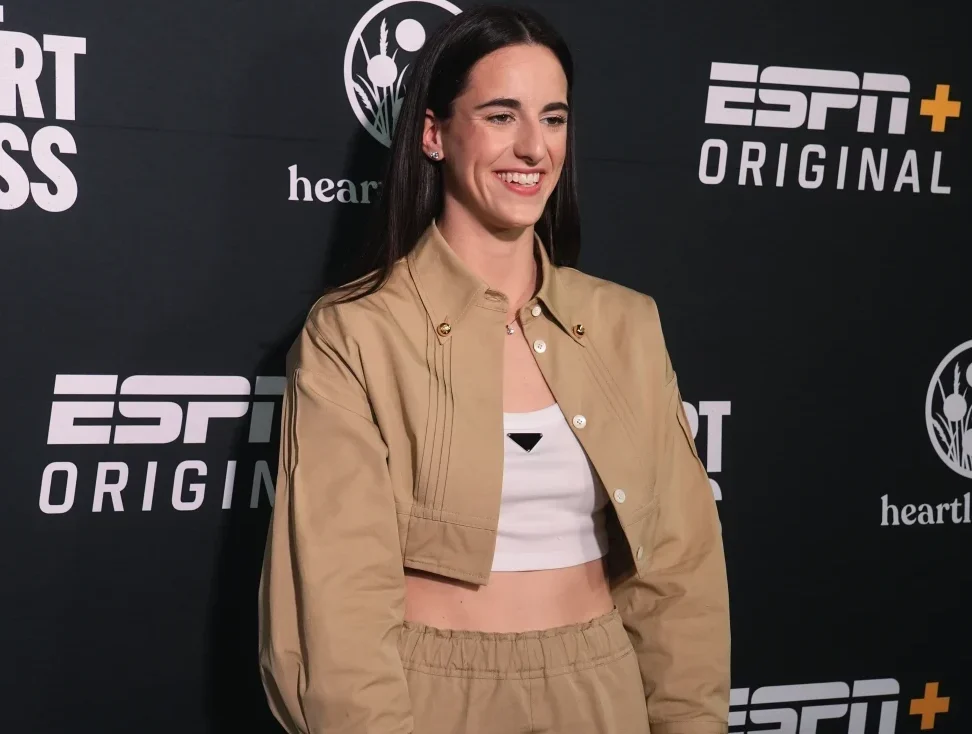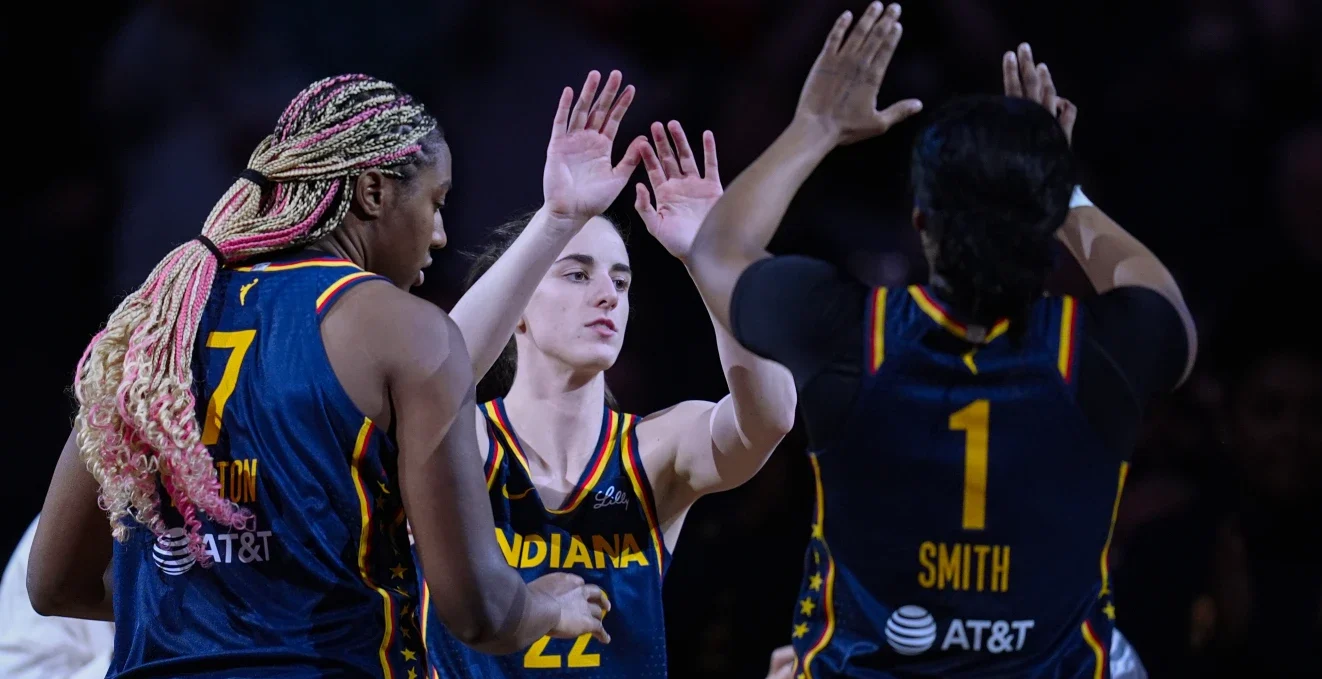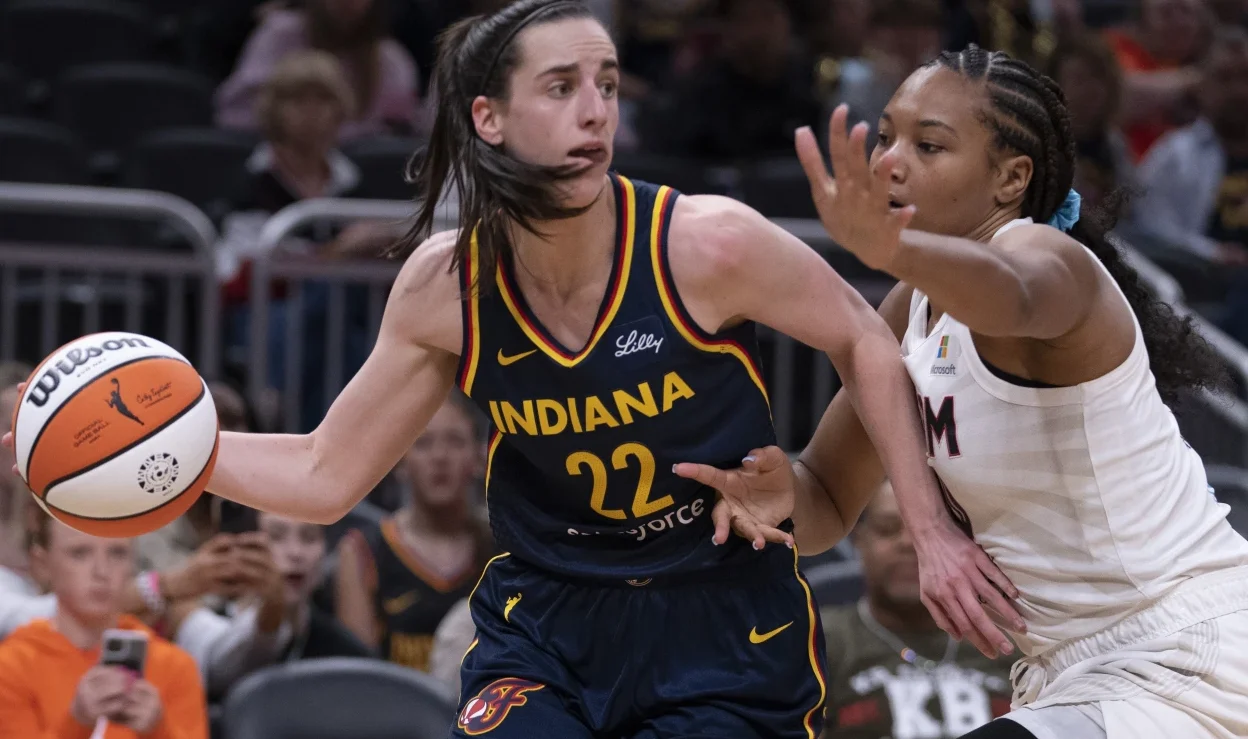For the past two years, Caitlin Clark has been a major figure in college basketball. Now, like NBA legend Larry Bird was 45 years ago, Clark is unintentionally at the center of discussions about race and her move to professional basketball.
Even though Clark hasn’t made any remarks to stir up the Black-white debate surrounding her rapid success, people are talking about a double standard.
“I think it’s a big issue. Many may argue it’s not about race, but in my opinion, it is,” commented Las Vegas Aces star A’ja Wilson when questioned about the racial aspect of Clark’s popularity, especially after she recently signed two significant endorsement deals.
“It really is because you can excel as a Black woman, but perhaps that’s not seen as appealing to some. They don’t view it as marketable, so no matter how hard I or other Black women work, we may still not get the recognition we deserve. That’s why it’s frustrating when people say it’s not about race because it actually is.”

To clarify, Clark is a talented basketball player from Iowa, while Bird was a skilled player from Indiana State. Both have mesmerized audiences and brought considerable attention to women’s basketball by showcasing their ability to score from anywhere on the court.
Neither Bird nor Clark were the initial standout white male or female professional basketball players. Jerry West is the real NBA logo, and before Clark, the WNBA had talented white players like Sue Bird and Breanna Stewart.
However, sports can become more exciting with a fierce rivalry, especially when race becomes a factor.
Clark’s ascent to stardom has been marked by her bold play on the court, making her a must-watch player as she led the Hawkeyes to consecutive NCAA championship game appearances.
When Bird guided the Sycamores to the championship game in 1979, he faced off against Magic Johnson in one of the most-watched NCAA tournament games ever.

At Iowa, Clark faced off against former LSU standout Angel Reese in the NCAA Tournament. Then she competed against women’s powerhouse South Carolina and coach Dawn Staley. These matchups created social media moments that captured audiences’ attention, regardless of gender.
These matchups also sparked ongoing conversations about how race influences the treatment of Clark, a white woman from “America’s Heartland,” compared to Black athletes like Reese. Clark has mentioned that she and Reese are just part of a larger movement.
“I would say Angel and I have always been fierce competitors,” Clark said before Iowa’s Elite Eight matchup with Reese and LSU in March. “I think Angel would agree, it’s not just us in women’s basketball. That’s not the only competitive aspect of our game, and that’s what makes it so great. We need multiple people to excel.”

However, the ongoing debate about race and perceived differences in treatment between Black players and Caitlin Clark is still relevant as she prepares for her debut WNBA game on Tuesday with Indiana facing Connecticut.
“New fans, or perhaps those returning to women’s college basketball, have been attracted, partly because of Clark, but also because of the LSU-Iowa rivalry,” said Victoria Jackson, a sports historian and clinical associate professor of history at Arizona State University.
“There are basketball factors,” Jackson added, “but there are also racial factors that have contributed to Clark’s significant rise compared to players who came before her.”
Due to this perceived double standard, nearly every aspect of Clark’s career comes under scrutiny: Clark’s first preseason game was streamed, but Reese’s wasn’t. Clark secures endorsement deals, while other established Black stars receive less attention.
If Reese talks trash, it’s criticized as unsportsmanlike, but when Clark does it, it’s seen as competitiveness. Reese faced backlash for attending the Met Gala before a game, raising questions about whether Clark would have faced similar scrutiny if she had attended.
Wilson, who recently signed with Gatorade and revealed her Nike signature shoe, along with others, have pointed out how companies are eager to partner with Clark, highlighting the inequality in how players are treated.

Clark’s deal with Nike is reportedly worth $28 million over eight years, making it the most lucrative sponsorship contract for a women’s basketball player and including a signature shoe.
Before Wilson’s announcement, the only other active WNBA players with signature shoes were Elena Delle Donne, Sabrina Ionescu, and Stewart, all of whom are white.
This perception of unequal treatment extends beyond endorsements. While Clark’s preseason debut was available on the WNBA League Pass streaming app, a post on the X platform from the WNBA wrongly stated that all games, including Reese and Cardoso’s debut for the Chicago Sky, would also be available.
As a result, a fan livestreamed the Sky’s game, garnering over 620,000 views. In an apology post, the WNBA clarified that Clark’s game was part of a limited free preview of its streaming app.
There are also racial aspects to how Clark is treated on social media compared to others, especially Reese.
Reese, who has previously talked about the hate she faced online, was criticized again after missing a preseason practice to attend the Met Gala. Clark has also faced online criticism, but not as much as Reese.

About 1 percent of all social media posts related to sports involve hate speech, according to Daniel Kilvington, a course director at Leeds Beckett University. He says that even though it seems low, considering the huge amount of online activity, it’s still too high. Athletes often face hate speech, harassment, and threats just for playing the sport they love.
As Clark’s popularity increases, so will the discussion about it. Jackson thinks it’s a good time to openly talk about this issue.
“I’ve heard people call her a once-in-a-generation talent so many times,” said the ASU professor. “But then I wonder, who else has been called that? Often, Black women athletes who deserve that kind of recognition don’t get the same level of attention. Caitlin Clark has become so well-known, even outside of basketball.
There are many reasons why this happens, but we need to consider it if we want fair treatment for all athletes.”
